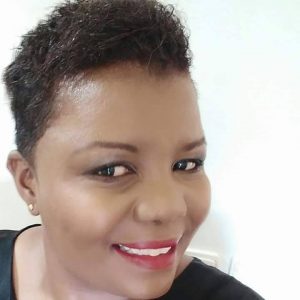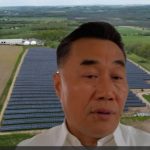Southern Africa could create 78,000 new jobs in less than 20 years
I have attended the global Gender Climate Alliance Innovation Forum, on the sideline of COP22, the UN Framework Convention on Climate Change held in Marrakech, Morocco last november. The event was supported by different UN Agencies, organizations and stakeholders. 200 participants from different countries attended the two days event. Different experience and action where shared. Mary Robinson from the Mary Robinson Foundation, addressed the need of bigger and great Dialogues among Women globally, Regionally and at a country level. Participants have concentrated efforts to improve gender balance and increase the participation of women in all UNFCCC processes. The Forum addressed key questions: Where Are We? Where Are We Going? What topics? How can we integrate gender into urban climate policy? These are my thoughts.
Where Are We?
Gender in the communities is a relatively new topic in Mozambique. But it has not received much attention although it is acknowledged that women and the youth are the most vulnerable groups in the communities.
In its response to ensure social safety and protection of the citizens, the Government of Mozambique introduced measures through departments. This is further supported by Policy Frameworks and Legal instruments. As Country Executive Director of Africa Foundation which works in southern Africa Countries, both in Mozambique and Zambia, I shared my experience in Mozambique. The lack of data is the main obstacle to integrate climate change, gender mainstream and the sustainable Development Goals (SDGs) simultaneously, in order to reduce poverty, promote food security and further gender equality in my country.
Climate change is affecting the youth. In most cases, the youth helps the family. The decrease in water pressure reduces the reliability of the water borehole in the villages. During drought,people move with their livestock for grazing and so require water. These additional challenges compromise the health condition of the youth as well as the education. It is critical to assess the viability of scaling up successful local solutions as well as identifying new solutions for them.
Where Are We Going?
The associated lack of food, water and income is already visible and it’s reaching social consequences such adoption of risky behaviours consuming of alcohol abuse, criminal activities (Poaching), theft and corruption that lead to family breakdowns. We have embraced the principles of gender equality and empowerment of women and youth . Through our affiliation to the Global Gender and Climate Alliance (GGCA), we aim to mainstream gender in all projects. We adopted the Global Environment Facility’s Gender Equality Action Plan (GEAP) to guide our gender action plan which forms part of our toolkit. Ms. L. Aguilar who heads the Global Gender Office of the International Union for Conservation of Nature (IUCN), based in Washington DC has appointed Africa Foundation for Sustainable Development – Mozambique to manage the validation process of the Mozambique’s Climate Change and Gender Action Plan. She was very impressed with the methodology and working values of our organization, especially the engagement processes.. We address the challenges of carbon emissions by reducing the reliance on fossil fuels, address the challenges of food insecurity through establishment of a “piggery bank”, to increase the mix of renewable energy sources by using the solid waste from the piggery (and human waste) as feedstock for the generation of biogas, the elimination of persistent organic pollutants by reusing the manure generated by the biogas digester, to mainstream gender by ensuring that women are prioritized in this project. To economically empower the communities through sustainable business practices, we finally develop the capacities of the women, youth, elders and learners in the communities with regard to the conservation of our natural resources by following the Sustainable Development Goals principles.
What topics? How do I see the Paris Agreement and the Sustainable Development Goals in Mozambique?
According to research conducted by Greenpeace Africa, Southern Africa could address climate change and simultaneously create 78,000 new jobs in less than 20 years, if the government seizes the opportunity to go green. The research indicates that a switch from coal to renewable electricity generation would reduce southern Africa ( Mozambique) carbon dioxide emissions by 60% by 2050 and also create more jobs than if the country continues along the conventional business path. In Mozambique we already collaborating with piggeries and have been conducting research to increase the sustainability of the farm and improve income. We would like to increase the production and also promote the usage of solid waste treatment and management with a biogas digester.
How can we integrate gender into urban climate policy?
African Foundation For Sustainable Development Mozambique is currently working on improving people’s lives through a sustainable agribusiness initiative by introducing small scale and earning farmers. This project is important, because it has the potential to directly address environmental matters linked to climate change, develop the capacities of the communities and create a new niche market. From our past experience, small scale farmers suffer from several challenges that range from access to finance, skills, support services, land tenure to name a few.
We envisage a piggery that will feed a biogas digester. It will provide heating, lighting, cooking and refrigeration for communities. This is a relatively new niche which will create the biogas technicians and engineers from the communities. They will be able to turn this into a viable business. From a municipal perspective the biogas digester will also alleviate some of the stress that is introduced by solid waste treatment and management, produced within informal settlements, simultaneously providing a renewable source of energy. We envisage replicating and scaling this project locally, nationally and regionally by sharing the learning’s of this demonstration project. We have already started discussions with key stakeholders, the Local Municipality and we have engaged community members to obtain an initial overview. The project has also been shared with partners in Zambia and Botswana.
*Thelma Munhequete is the Country executive of the African Foundation for Sustainable Development Mozambique





